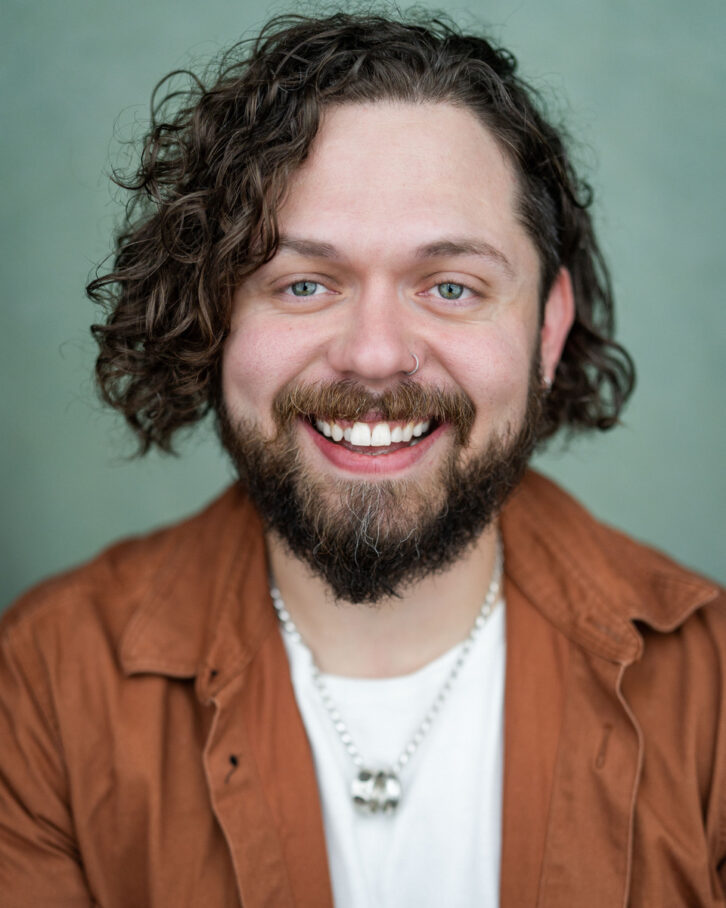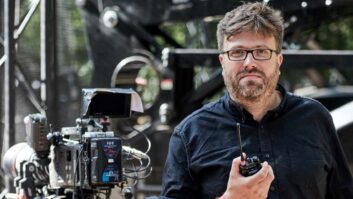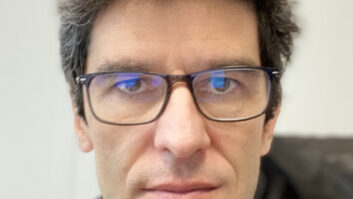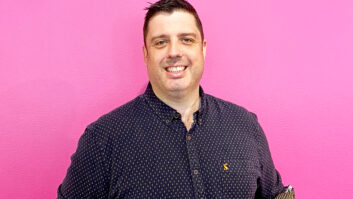Keith Higinbotham, voice director and dialect coach
Talk us through an average day in your role
It depends what role I’m doing that day! As a video games voice director, I will usually spend the morning marking up the script for the actor (and for myself). I always like to make sure I know exactly what I’m going to be tackling that day to ensure I understand the brief, the story, and what is required. The sessions can last up to four hours and will consist of directing the actor, reading in as the other characters, and choosing my favourite take. At times my skills as a dialect coach come into play, so I offer advice on specific pronunciation changes for the actor too, if they’re performing in a different accent.

As a dialect coach, I could be researching and breaking down an accent for an actor or production. This’ll consist of gathering samples and listening to each element of the accent meticulously and learning it myself so it’s easy for the actor to digest. Then it’ll be a process of planning how I’m going to coach the actor depending on their learning style! My one-to-one sessions are quite relaxed, so there’s lots of room for the actor to play. My work on set is a different beast – that environment is fast-paced and intense. It’s up to me to know how and when to guide the actor quickly between takes… the most important thing is to not step on the director’s toes!
How did you get started in the media industry?
Through persistent pestering and dogged determination… just kidding (or am I?)
But seriously, mainly through recommendation! It was important to me that I ended up working in games and film and so every decision I made had to align with that goal. That included taking on work I didn’t necessarily want to do to hone my skills. During this time, I worked with other people in the industry who recognised my abilities from seeing them in action. Networking has been the most valuable thing I have done and continue to do for my career.
I wouldn’t be anywhere without the excellent and unwavering support of my agents, Divergent Talent Group. They’ve helped me manage my symptoms of ADHD to ensure I continue to stay on track and hone my craft, and continue to build my career in the media industry.
And I definitely wouldn’t be anywhere without the guidance of my mentor; renowned dialect and voice coach, Jan Haydn Rowles. Jan continues to be an extraordinary teacher for me, challenging my skills and knowledge as a coach and mentor, to ensure the industry standard remains high.
What training did you have before entering the industry?
I trained as an actor at Rose Bruford College and also worked in the industry solely as an actor for around 15 years. After working on stage and screen for many years, I continued to specialise in voice-over and performance capture performance.
As an actor, I didn’t feel I had much control or say over my career so I wanted to learn how I could use my skills to help others in performance. I enrolled at the Royal Central School of Speech and Drama and gained a Master of Fine Art in Voice Studies, specialising in voice for performance and accents/dialects. I went on to become a certified Knight Thompson Speechwork practitioner and developed my skills in performance capture performance by training with Neil Newbon at the Performance Captured Academy (of which I am now a teacher and mentor.)
Why do you enjoy working in the industry?
It’s fast-paced, challenging, and no single day is the same as any other (all of these things are just perfect for my ADHD brain.)
Also, working in games and TV is a pretty cool thing to say, isn’t it?
What piece of advice would you offer someone looking to explore a role similar to yours?
You have to have an unwavering interest in your line of work. It’s tough out there and the knockbacks can make you feel resentful towards the work and the industry. It’s important that your love for your craft shines through and that you are able to adapt to people, their learning styles, and ultimately, to the brief.
Don’t run before you can walk, make sure you have developed the skills to shine on the first big job as first impressions count. Keep developing your skills!
Finally, be kind to people and be sure to ask for advice from those whom you admire. You never know who can get you your next “in” and this is a small industry – people chat!







